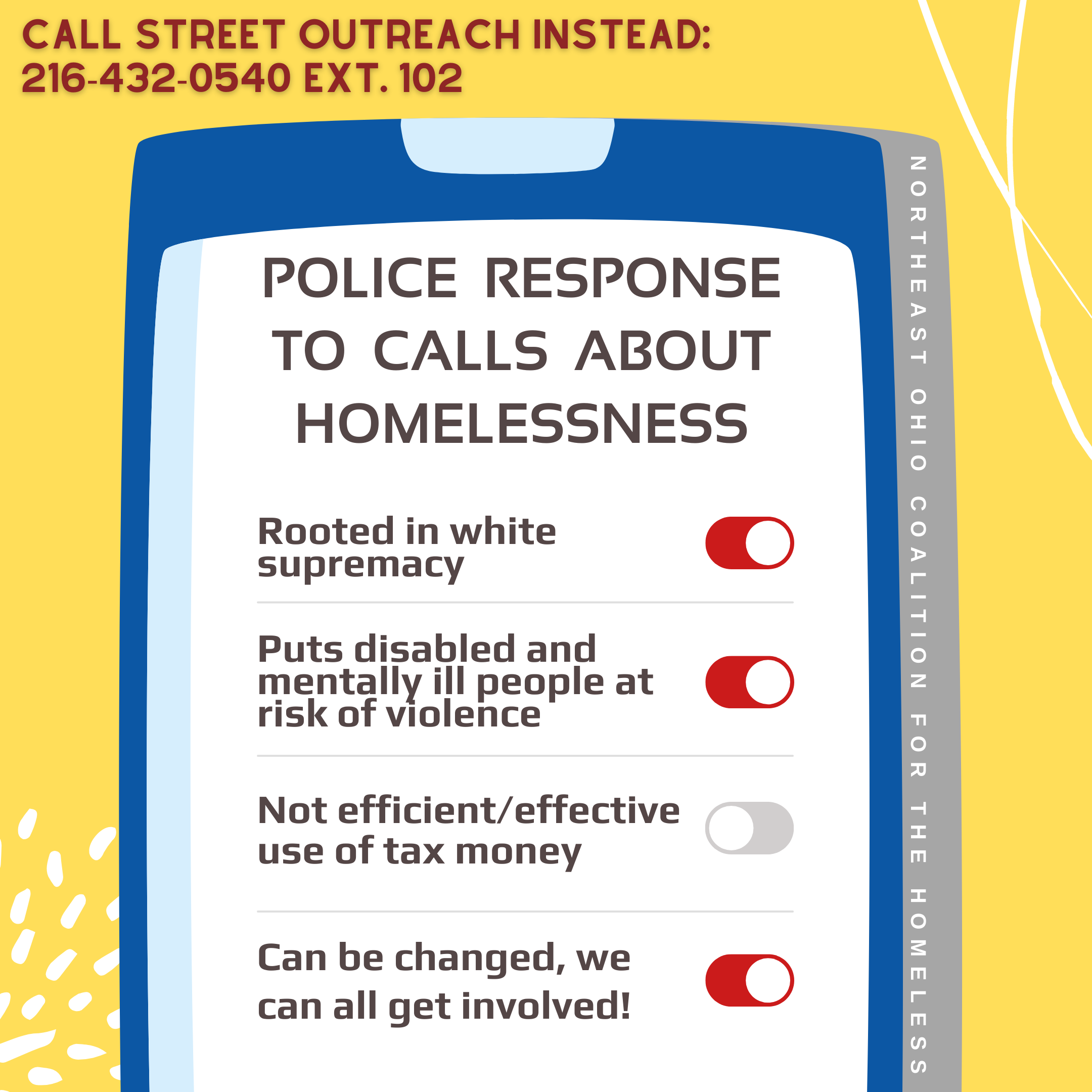Don't Call the Police: homelessness is not a crime!
the recording of our teach-in on the criminalization of homelessness and alternatives to policing Is available on NEOCH's Facebook page here.
There were so many takeaways to be found, but here are a few of the ones that stood out most:
The current system of criminalizing homelessness and sending police to remove them from public places is rooted in a racist history of segregation, vagrancy laws, and slavery. The impacts it has today continue to promote white supremacy.
Calling the police on unhoused people puts disabled people and people with mental illness at risk for violence.
Arresting/ticketing/displacing unhoused people is inefficient, ineffective, and costly. It does not eliminate the presence of unhoused people from a neighborhood, and actually increases people's time spent unhoused.
Street outreach as it currently operates is not enough! NEOCH is only open 9-5, as are most other social service agencies. Please still call us after 5 if you see someone in need of outreach, who is not experiencing a medical emergency. Leave a message for our Outreach Coordinator Denise on extension 102 and we will follow up the next day. In cases of true emergency, the best option in our current system is to call 9-1-1 for an ambulance, which unfortunately also involves police presence, under the current model in our city. We need a systemic shift to divert emergency calls to a 24-hour team that does not involve police.
There are ways for all of us to get involved in the process of shifting our community to a new system!
The three things you can do to make our neighborhoods safer for unhoused people are:
Print out our flyer and ask local businesses, places of worship, and civic organizations to hang it up. Ask people involved there to call street outreach instead of police.
Share our social media graphics in your local block-watch and community news groups. Facebook, NextDoor, listservs are all good places to share these. Explain to your networks why it's ineffective and dangerous to call police on unhoused people.
Get involved in local advocacy efforts to divert public resources away from policing (like the participatory budgeting process) implement an alternative response model that does not send police to respond to calls about unhoused people. One way to do that is by attending meetings of the Diversion Sub-Committee of the Mental Health Response Advisory Committee (MHRAC), which is currently exploring the CAHOOTS model, and other alternatives to policing people in crisis. These meetings are just starting up, and will be occurring the first Thursday of every month from noon-1:30PM. Please contact Larry Heller to get involved: hellerlarry@gmail.com (216) 644-4747.
If you're interested in learning more about alternative solutions to policing and incarceration, particularly if you're a social service provider, please join us for our upcoming webinars on harm reduction, trauma informed care, and domestic and gender-based violence. Hope to see you all soon!


